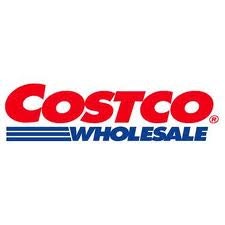
While the company is doing well, the market is currently pricing in high earnings growth at Costco. The stock is trading at 23 times trailing earnings, representing a substantial premium to other discount retailers. Earnings growth has been high, but lower effective tax rates is not a sustainable source of bottom-line growth and over time we’d expect it to become more difficult to Costco Wholesale Corporation (NASDAQ:COST) to grow its margins. While sales have been doing well, that growth rate might not be enough to justify the current stock price. Wall Street analysts expect only moderate improvements, and so the forward P/E comes out to 21. Costco does have limited exposure to the broader economy with a beta of 0.5, but betas at that level are common among discount retailers.
We can learn which hedge funds and other major investors owned Costco shares as of the beginning of January by turning to our database of 13F filings, which we primarily use to develop investing strategies (we have found, for example, that the most popular small cap stocks among hedge funds outperform the S&P 500 by 18 percentage points per year on average). Our records show that Warren Buffett’s Berkshire Hathaway owned 4.3 million shares of Costco Wholesale Corporation (NASDAQ:COST) at the end of the fourth quarter of 2012; while 13F data is a little old, Buffett tends to have a longer time horizon for his investments and likely still has a position of some size (find Buffett’s favorite stocks). Renaissance Technologies, founded by billionaire Jim Simons, increased its stake to a total of 1.7 million shares see Renaissance’s stock picks).
The closest peers for Costco Wholesale Corporation (NASDAQ:COST) are Wal-Mart Stores, Inc. (NYSE:WMT) and Target Corporation (NYSE:TGT). These two companies trade even with each other at trailing earnings multiples of 16, which means that they carry considerable discounts to Costco as we’d alluded to above. Wal-Mart Stores, Inc. (NYSE:WMT)’s last quarterly report showed 9% earnings growth from a year ago, although some reports have indicated that the retailer is struggling in the current quarter (of course the same may be true for Costco as well, if it is because of general economic conditions). Target Corporation (NYSE:TGT)’s recent earnings numbers have been a bit weaker (in fact, its last quarter featured 2% lower earnings than the fourth quarter of the last fiscal year although revenue growth was positive), and with its beta being a bit higher than Wal-Mart’s as well it doesn’t seem to be as good a buy. With both of these companies being considerably cheaper than Costco Wholesale Corporation (NASDAQ:COST) (and therefore requiring less growth to be a good value) Wal-Mart Stores, Inc. (NYSE:WMT) in particular might be worth considering.
Other discount retailers include Big Lots, Inc. (NYSE:BIG) and PriceSmart, Inc. (NASDAQ:PSMT). Big Lots is the cheapest of all of these companies by earnings multiples, with trailing and forward P/Es of 12 and 10 respectively. There is considerable short interest in the stock, and it is down 20% in the last year, but the company has been achieving at least some growth recently and at that pricing it might be worth taking a closer look at Big Lots, Inc. (NYSE:BIG). PriceSmart, Inc. (NASDAQ:PSMT), which operates membership warehouse clubs in Latin America and the Caribbean, reported double-digit growth rates on both top and bottom lines in its most recent quarter compared to the same period in the previous fiscal year. However, investor optimism has bid up the price to 26 times forward earnings estimates. It’s possible that the company is worth its premium to Costco, but we would still be wary when comparing that multiple to revenue growth of about 11%.
Costco Wholesale Corporation (NASDAQ:COST) is performing better in financial terms than Wal-Mart, Target, and Big Lots, but its pricing in the market is quite a bit higher and so we wouldn’t consider it a good value. In fact, investors who are looking at going long one of those other three companies might consider pairing it with a short in Costco on the theory that if Wal-Mart (for example) is in fact having a bad quarter than that company should be as well.
The article Does Costco Deserve Its High Stock Price? originally appeared on Fool.com and is written by Meena Krishnamsetty.
Copyright © 1995 – 2013 The Motley Fool, LLC. All rights reserved. The Motley Fool has a disclosure policy.

